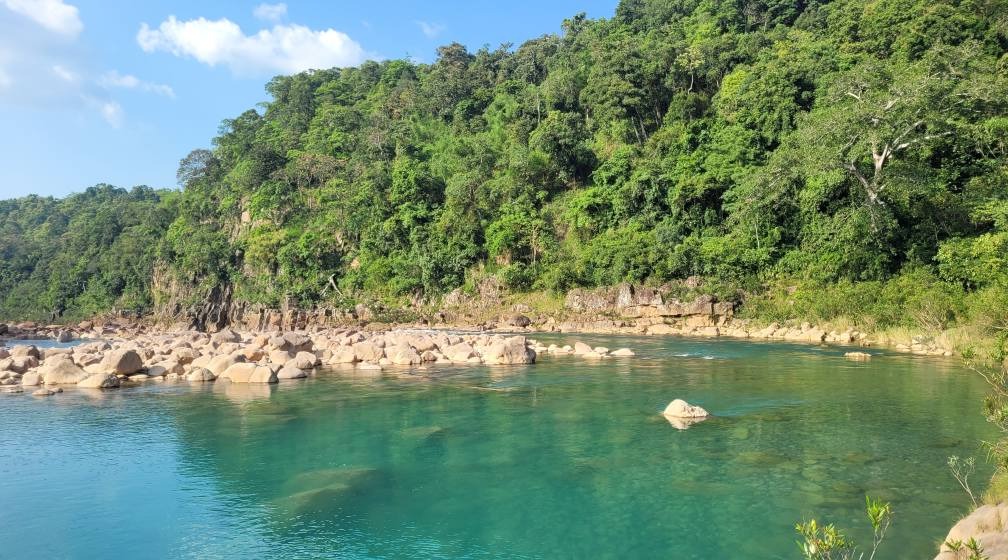Guwahati, June 17: In a serious escalation of the controversy surrounding the Adani Group’s proposed cement mega-project in Assam’s Dima Hasao district, the National Commission for Scheduled Tribes (NCST) has served a formal notice to the District Commissioner. The commission has demanded an Action Taken Report (ATR) within seven days regarding the allotment of 9,000 bighas of tribal land in Umrangso, which locals say has been done without their consent and in violation of constitutional protections.
The NCST’s action follows a petition filed by the Indigenous Peoples Party (IPP), which alleges that the land acquisition plan—intended for what is touted as Asia’s largest cement plant—would displace over 14,000 indigenous families, including Karbi, Dimasa, Naga, and Adivasi communities, and jeopardize the rich ecological balance of the region.
The Commission pointed out that it had issued an earlier notice on March 7, 2024, but received no response. It has now warned the Dima Hasao administration that further delay could invoke powers under Article 338A of the Constitution, allowing the NCST to summon officials for a personal appearance, as per its authority equivalent to that of a civil court.
At the heart of the dispute lies 1200 hectare (9000 bighas) of land classified as khas by the North Cachar Hills Autonomous Council (NCHAC). The land was reportedly handed over to the Adani Group for the cement plant project without public consultation, prior consent of affected villagers, or transparency in the process. Activists say this violates not only the Sixth Schedule of the Constitution but also long-standing community rights over ancestral lands.

Mridul Garlosa, one of the key activists opposing the project, welcomed the NCST’s move. “NOCs were issued behind closed doors. Villagers were only informed after everything had been signed off. This pattern of backdoor deals has gone on for decades,” Garlosa said. He also cited previous land grants in the region to NEEPCO, AMDC, Vinay Cement, and the Lower Kopili Hydro Electric Project—all, according to him, done in a similar top-down fashion that ignored local voices.
Villages including Borolokhindong, Sikilangso, Checkso, Borolobang, and Chotolobang are among the worst affected if the cement plant proceeds, with residents warning of mass displacement, cultural erosion, and environmental damage to a region known for its biodiversity.
Rajen Timung, IPP’s chief coordinator, called this a “second major victory” for the group. He referenced an earlier campaign in Karbi Anglong where IPP’s lobbying contributed to the Asian Development Bank pulling a $434.25 million loan for a proposed solar project that threatened tribal lands.
“This fight is not just about territory. It’s about the survival of cultures, languages, and identities. It’s about ensuring that tribal people are not erased in the name of industrial progress,” Timung said. He stressed that IPP will continue to hold both government and corporate actors accountable through legal and democratic means.
Further stoking public anger are reports that the Directorate of Geology and Mining (DGM) has floated tenders for eight limestone blocks in the Umrangso area—allegedly without consulting the autonomous council. Activists claim the Adani Group is the frontrunner for these blocks, and accuse the Assam government of bypassing NCHAC’s authority to fast-track corporate expansion.
In a worrying development for indigenous rights campaigners, three more cement plants—by Ambuja Cement, Dalmiya Cement, and another private company—are reportedly lined up for clearance. Garlosa claims the state government is pressuring the NCHAC to issue more No Objection Certificates (NOCs) without engaging local communities.
Civil society groups and regional stakeholders, including the Khasi Students’ Union, the Meghalaya Chief Secretary, and the Principal Chief Conservator of Forests, have also been notified by the opposition, as the resistance begins to gain traction across state boundaries.
The NCST’s notice has now put both the Assam government and the Adani Group under sharp scrutiny, reigniting broader concerns over tribal land rights, environmental degradation, and the unchecked influence of large corporations in protected and autonomous regions of Northeast India.




